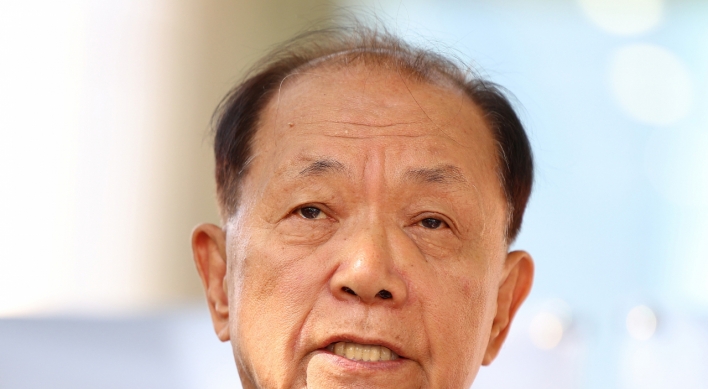Independent game developers betting on passion over profit
By a2016032Published : May 12, 2017 - 09:14
South Korea, a thriving hub of technology in Northeast Asia, is also second to none when it comes to the gaming industry, with the size of the local market estimated at 11.3 trillion won ($9.9 billion) as of last year.
According to data compiled by Korea Creative Content Agency, the country's game market is expected to continue growing and reach 11.6 trillion won in 2017.

The growth is especially faster for mobile games. The country's market for mobile games has been estimated at 3.89 trillion won in 2016, up 11.7 percent from a year earlier. The figure is set to reach 4.2 trillion won this year.
The country is home to Netmarble Games, South Korea's top mobile game developer which holds mega-hit title "Lineage 2: Revolution" under its wing.
But South Korea's mobile gaming industry is not just about major firms.
On April 22, South Korea's independent developers gathered in central Seoul to take part in a game festival hosted by US tech giant Google Inc., boasting unique titles that can rival those of big players.
While game titles released by independent firms are normally considered to have poor graphics or action compared to those launched by big-names, the developers said they were proud of the unique and distinctive features of their content.
Jang Hawrang of IG Soft, is one of the independent developers proud of the achievements made despite a small number of workers and limited capital.
"Our game, Fort Run, is a role-playing game that can be enjoyed simply anywhere," Jang said. "Despite its simplicity, the game also boasts continuously changing content to keep users interested."
Jang said it was not easy for him to start a game company, yet he made the plunge by reminding himself it is okay even if he failed.
"All I cared about was making a fun game," the developer said.
Kim Ki-jung of Lila Soft is another who set up an independent gaming company purely out of enthusiasm.
"I wanted to make a company before it's too late," 38-year-old Kim said. During the event, Kim introduced a music-themed rhythm game that adopted car-racing features, making the title stand out from other rivals.
"As an independent developer, I faced various hurdles including financial issues. In order to compete with major companies, our game had to be different," Kim said. "But an independent game still can be successful once it provides a distinct experience to users."
While the global market for mobile gaming content remains challenging, some of the titles have won favorable feedback from overseas markets. One of them is Milk Choco, a first-person shooter game developed by GameParadiso.
"We have posted more than a million downloads on the Google app store," said Shin Seung-ho, one of game's developers said. "We have customers from not only South Korea, but also from the United States, Taiwan and Thailand."
Shin said while the company never made major advertisement, the game gathered popularity through social media.
"We want to make a company where everybody can work and have fun. We also try not to give much financial burden to users as well," Shin said.
Lee Woo-min, a 20-year-old fan of independent games, said he loves playing such titles as they are different from those of major developers.
"Games by major companies are for the most part similar. You turn on the program and choose a hero depending on their status.
But as for independent games, they have unique ideas," Lee said.
"Being different is a major factor that makes a game more enjoyable."
The small developers, meanwhile, unanimously called on the government to come up with more practical ways to help local gaming companies penetrate deeper into the overseas markets.
"The independent game developers tend to be creative rather than following the latest trend. Yet the government's funding focuses on latest technology such as virtual reality, or other popular genres," Shin said.
"The government should respect independent developers that experienced failure. Being successful in the development of games is like winning the lottery," he pointed out.
Kim also said the government should make a support program that can help independent developers over a long-term basis, rather than just providing them with one-time support.
"The support should also continue after the release. As developers face various hurdles throughout the entire process of development to release, the government should also consider providing policies on such aspects," Kim said.
Jang Su-young, who heads Kiwi Walks, echoed the entrepreneurial spirit of independent game developers emphasizing such people do not cling on to trends.
"South Korea's industry for independent games still has a long way to go," Jang said. "But as there are developers who are willing to tackle challenges head on, I believe the future is bright." (Yonhap)






![[KH Explains] No more 'Michael' at Kakao Games](http://res.heraldm.com/phpwas/restmb_idxmake.php?idx=644&simg=/content/image/2024/04/28/20240428050183_0.jpg&u=20240428180321)










![[Herald Interview] Mistakes turn into blessings in street performance, director says](http://res.heraldm.com/phpwas/restmb_idxmake.php?idx=652&simg=/content/image/2024/04/28/20240428050150_0.jpg&u=20240428174656)
